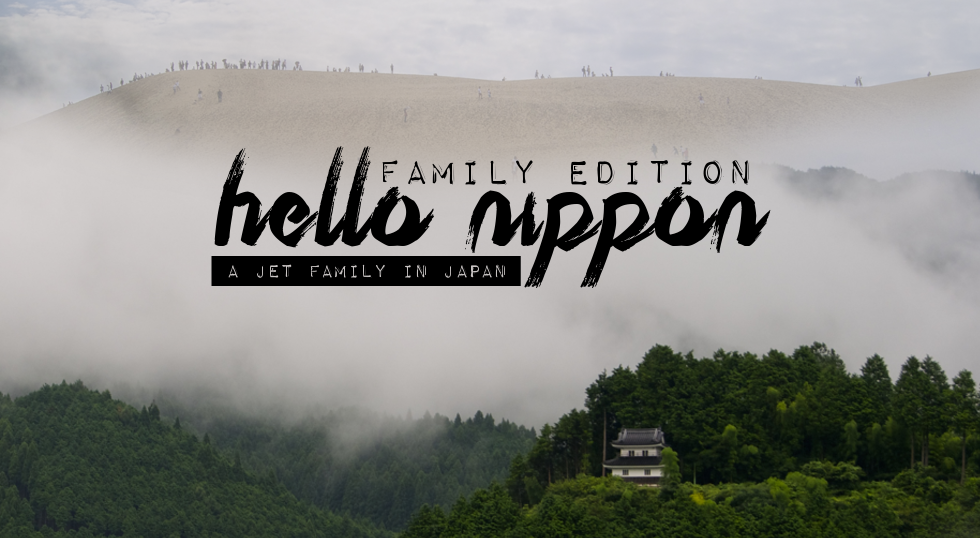Early in November, she came along to the culture festival at the JHS. Typically Japanese, there were lots of speeches. I was super impressed when she picked out the word "undoukai" [sports day] from one speech. It can be hard for even me to pick things out of speeches.
Interestingly, she tends to default to Japanese when meeting new people - regardless of their actual country of origin/language. I think because the world outside our house is completely in Japanese, she just automatically switches to Japanese mode.
She's still using "hattata", whatever that means. And she often Japanizes English words she can't translate yet, for example, "monkey-u".
One of her favorite things to say now is, "Oops! I machigatta-ed!", which is her weird way of applying English verb conjugation to Japanese verbs (adding -ed for past tense).
She also seems to be getting good at learning from her peers. For example, one day at the store we were looking at toothbrushes. One of her friends was with us, and asked, "kaemasuka?" [are you buying that?], and she answered, "kaemasu yo!" [i'm buying it!]. I'm not even sure she knows that verb, but she clearly knew how to use the same verb her friend had used to respond.
Some new words that I've noticed her using recently:
- boshi [hat]
- kudasai [please]
- kosumosu kumi no yana desu. papa to kaerimasu. [yana from cosmos class. leaving with papa.]
- machigatta [i made a mistake/i was wrong]
- kyouryuu daisuki [i love dinosaurs]
- kuma [bear]
- sore nani / nani sore [what's that?]
- kore sugoi/ sugoi kore [that's awesome!]
- isshou ni asobu? [shall we play together?]
- undoukai [sports day]
- ribon [ribbon/bow]
- mitai [looks like]
- te [hand]
- donguri [acorn]
